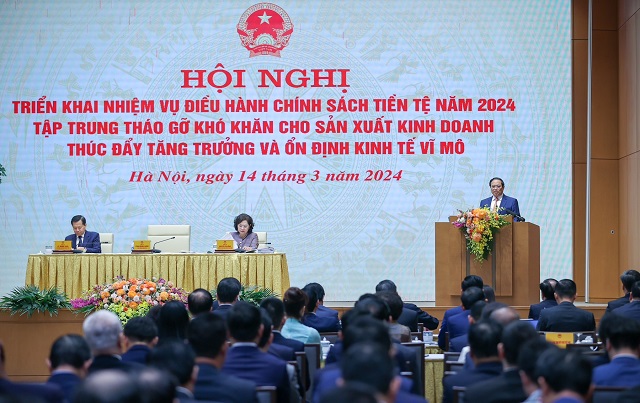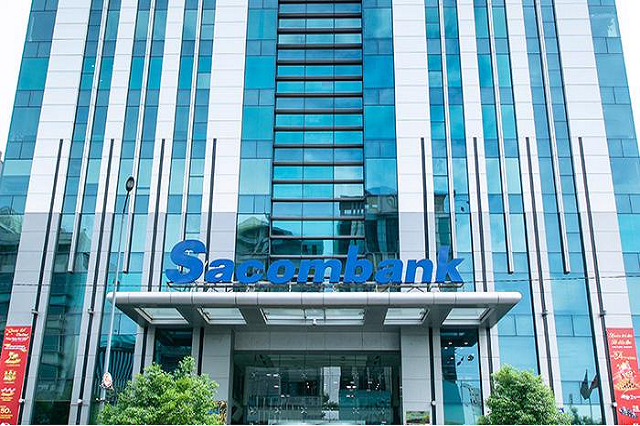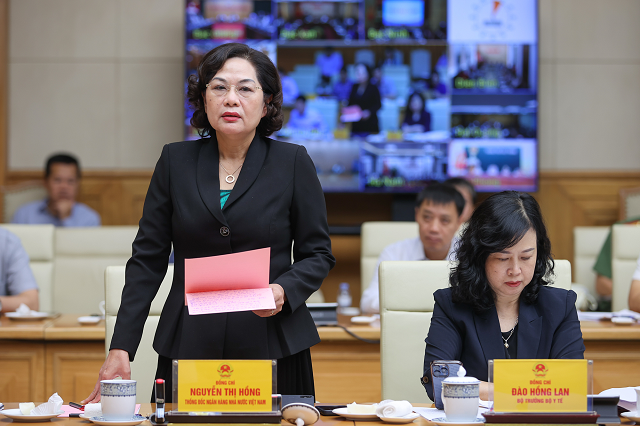On March 14, Prime Minister Pham Minh Chinh and Deputy Prime Minister Le Minh Khai chaired a conference to implement the monetary policy tasks for 2024, focusing on resolving difficulties for production and business operations, promoting growth and macroeconomic stability.

Credit growth for the first two months of the year falls; large amount of deposits; high interest rates for loans
|
The economy is recovering in all sectors.
At the conference, the Prime Minister emphasized: In 2023, our country achieved positive results in most sectors. The macroeconomy is stable, inflation is controlled, and growth is promoted. Large balances are ensured; the currency is stable, public debt, government debt, and foreign debt are controlled within limits; budget spending is in control.
A total of 560 trillion VND has been saved for salary reform starting from July 1, 2024, and an increase in the minimum wage in non-state sectors is expected. Social security is ensured, people’s lives are improved; anti-corruption efforts are strengthened; defense and security are enhanced; international integration and diplomacy have achieved historic achievements.
At the beginning of 2024, there are positive signs of economic recovery in all sectors.
However, the global economy in 2024 is still facing many difficulties due to various reasons. Therefore, although the Vietnamese economy is shining, progressing, and recovering, it still has existing limitations and continues to face many difficulties and challenges that may arise at any time.
Credit growth for the first two months of 2024 decreased compared to the end of 2023, while the amount of deposits is still very high (14 million trillion VND); lending rates are still high; bad debt tends to increase; the handling of weak commercial banks is still slow; some credit programs are not effective (such as the 120 trillion VND package for social housing loans, while the 15 trillion VND package for forestry and aquatic product loans is disbursed very quickly)…
Why do businesses complain about a lack of capital, where is the bottleneck, and what are the reasons?
The Prime Minister suggested that delegates, especially Chairpersons and General Directors of commercial banks, focus on discussions and propose specific answers and solutions to some fundamental issues as follows:
First, how should monetary policy, especially interest rates and exchange rates, be managed to prioritize promoting growth (about 6-6.5%) and maintaining macroeconomic stability, controlling inflation, and ensuring the major balances of the economy?
Second, why do businesses complain about a lack of capital and have difficulty accessing credit, while the amount of deposits from economic organizations and the public into the banking system is increasing, despite the continuous reduction in deposit interest rates? Where is the bottleneck, what are the reasons, regulations, management, prudence, or local issues? (According to the State Bank of Vietnam, the average deposit interest rate for new transactions of commercial banks is 3.3% per year, a decrease of 0.2% per year compared to the end of 2023; the average lending interest rate for new loans is 6.4% per year, a decrease of 0.7% per year compared to the end of 2023 – but interest rates for existing debts are still high).
Third, is the credit supply situation of the banking system for the economy, each industry, and sector good enough? What are the bottlenecks, causes, solutions to overcome, and ensure that the supply of capital is not hindered, delayed, or untimely? How to provide credit with focus and priority for production and business?
Fourth, what measures should be taken to enhance businesses’ and individuals’ access to credit capital? Particularly, measures regarding interest rates, procedures, loan documents, collateral assets, guarantee measures, communication, and technology…
Fifth, what should commercial banks do to ensure credit growth of around 15% for the whole year as directed by the State Bank of Vietnam from the beginning of the year? How to continue reducing lending interest rates to share difficulties with the people and businesses?
Sixth, what should the government, the State Bank of Vietnam, ministries, sectors, and localities do? What should the business community and the people do to stimulate investment and consumer demand, increase the absorption capacity of the people and businesses’ capital? What tools are needed? For example, the Credit Guarantee Fund for small and medium-sized enterprises?
The Prime Minister suggested that the delegates focus on discussions, speak frankly, highlight achievements and shortcomings objectively, identify objective and subjective causes, draw from experience, address the key issues, and propose recommendations to the government, the State Bank of Vietnam, ministries, sectors, and localities, partly answering the questions raised.















